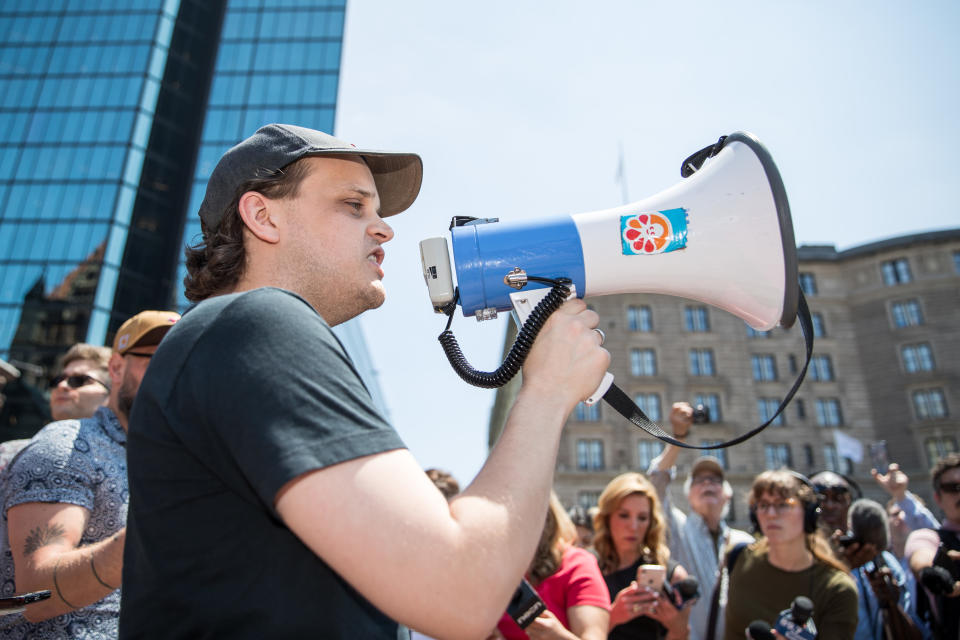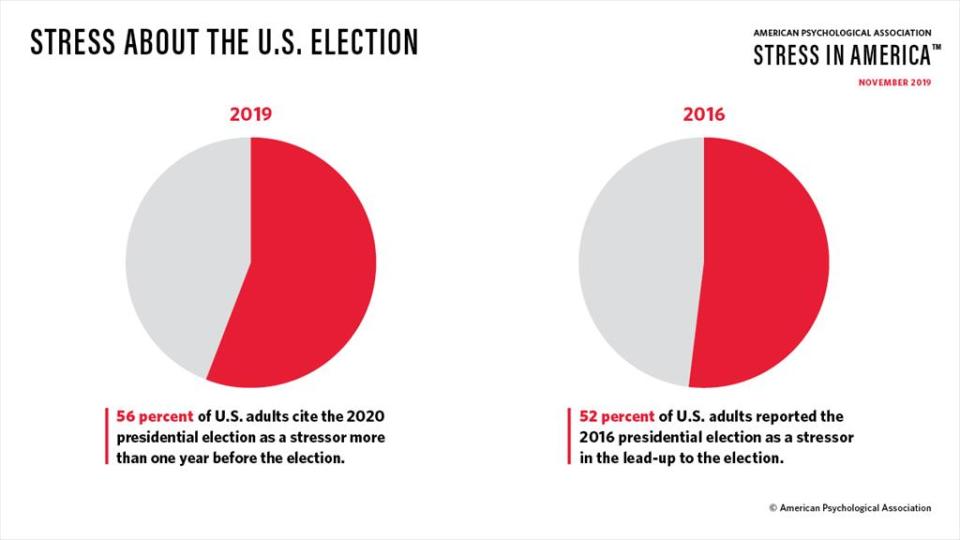How politics will make office life and job-hunting harder next year
The 2020 presidential election stands to unleash the political side of employers and their employees alike, which could affect how companies attract talent and which positions job hunters are willing to accept.
The polarized environment likely will increase stress levels at the workplace, too, and impact day-to-day communication, according to a new job trends report from Glassdoor.
“Many people view their job as part of their identity today,” said Dr. Andrew Chamberlain, chief economist at Glassdoor. “That’s changing what they expect from employers. It’s not enough to pay a competitive market wage. You have to have an image consistent with what people want to see.”

Not ‘just a paycheck’
Employees, especially younger ones, expect their companies to do more politically rather than stick to the sidelines.
Three-quarters of 18- to 34-year-olds expect their company to take a stand on issues like immigration, equal rights and climate change, according to a Glassdoor survey from 2017. Overall, 3 in 5 workers expect that from their employers.
“They want a job that integrates seamlessly with their life,” Dr. Chamberlain said. “It isn't just a paycheck, but is also a symbol of who they are.”
Employers who do take a stand may have a recruiting edge in 2020, at least among those potential workers who agree with their positions, said Dr. Chamberlain.
That may be easier for companies who have a more homogenous workforce like technology companies, which have employees that are often younger and based in urban areas. But companies that attract a more diverse workforce in age and location – such as health care employers – may find taking political positions to be a challenge, Dr. Chamberlain said.
Politics and hiring
Job hunters may want to be quieter about their political preferences, though.
If it’s important to find a company that matches your personal values, check a potential employer’s guiding principles or mission statements, typically included in their job postings, said Johnny Taylor, Jr., CEO of SHRM, an industry association for human resources professionals.
“If you don't think you can live by these guiding principles,” Taylor said, “then you shouldn't apply for this job.”

If job hunters want to stay out of the political and social debate, they should divert those conversations if they come up in job interviews. They should prepare and rehearse their answers, so they don’t indicate their political preferences and other biases.
Taylor said that more job hunters are also removing references on their resumes about working or volunteering for a political campaign.
Politics in the office
Еxpressing your political preferences may be problematic not only in the interviewing process, but also once you get hired.
“Talking about politics in the workplace is a minefield,” Dr. Chamberlain said, “and it makes building relationships at work more stressful during an election year.”
The 2020 presidential election is already a major stressor for Americans, even more so than the 2016 one, according to a study by the American Psychological Association.

The study also found that other major stressors people cited like mass shootings, health care, and immigration all are issues the election could affect, said Dr. Vaile Wright, director of research at the APA. For the first time ever, political and social issues stressed out Americans even more than money and their jobs.
“Going to work feels like a place where they probably have a bit more control than when they think about the upcoming election,” Dr. Wright said.
Except maybe not in 2020.
Denitsa is a writer for Yahoo Finance. Follow her on Twitter @denitsa_tsekova.
Read more:
Follow Yahoo Finance on Twitter, Facebook, Instagram, Flipboard, SmartNews, LinkedIn, YouTube, and Reddit.

 money
money 
